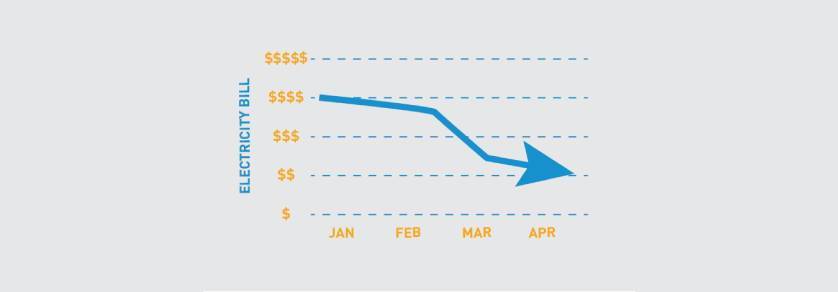Make Money While You Sleep With Net Metering

Solar energy is currently a 50-state market. Of course, what entices most shoppers is the fact that using solar power reduces dependency on the grid - which means lower electric bills. It can minimize a home’s carbon footprint, too. But how does this happen? An important part of the process is net metering.
What Is Net Metering?
Net metering or net energy metering is simply a utility billing mechanism. Currently, 43 states plus the District of Columbia have allowed net metering. However, net metering policies vary significantly by state. Let’s say your solar panels generated an excess amount of power during the day, but you don’t have a battery bank to store it with. What happens then? Homeowners are credited by utility companies for each "excess" kilowatt.
The excess power will be sent back to the grid. In exchange, you can pull it from the grid when your system is under-producing, particularly at nighttime. On average, only 20-40% of your solar system’s output goes into the grid. In order to monitor the amount of electricity consumed, utility companies install a “net meter.”
How Does Net Metering Work?
Solar panels convert sunlight into DC electricity and an inverter converts it to AC electricity. Then, clean solar energy is sent to your home. During this cycle, a bi-directional solar meter monitors energy consumed and produced. Any excess energy is sent back to the grid for you to use during non-solar hours.
Let’s say your solar panels produced an excess of 80 kwh of power which is then delivered to the grid that day. In the evening, you used around 100 kwh of energy. With net metering, you will only be billed for 20 kwh. Meanwhile, if you sent back 80 kwh of power to the grid and used only 60kwh, you would be credited for 20 kwh.
When you build up your credits throughout an entire year, it comes in handy down the road. You won’t have to worry about consuming too much energy, especially in winter, because all your extra credits can save you on costs.
The Benefits of Net Metering
Net metering is more than just a money-saving choice. The program allows solar energy users to maximize what they can gain from the sun and become more self-reliant. It gives customers more control over their electric bills.
Because net metering policies enticesmore consumers to switch, it also helps in providing more jobs and encouraging private investment. It increases the demand for installers, electricians, and manufacturers who work in the solar supply chain.
Another important benefit is its ability to protect the electric grid. Utility companies can minimize long-distance electricity transmission and prevent energy losses. By reducing net demand, it also lessens the strain on a grids distribution system during peak times.
How to Maximize Net Meter Return
The secret to getting maximum return from net metering is to start early! The sooner you switch to solar and generate your own electricity, the sooner you can limit the power you are purchasing from your utility company. Earning more energy credits can help you offset high electricity costs during the hottest seasons. Or, you can bank the credits for the cooler months.
After installation, keep in mind that the savings may not be evident right away. Factors like energy usage, seasonal changes, and how many credits you build up should be taken into account. Even if you don’t see huge savings every month, your energy expense should be lower over the course of an entire year. If you’re ready to take the next steps to start saving even more money on your energy bill, fill out our free Sun Analysis form below, and we’ll help you determine if going solar is right for you.



